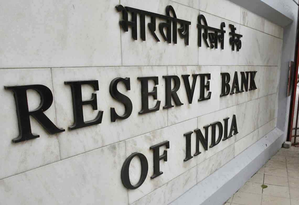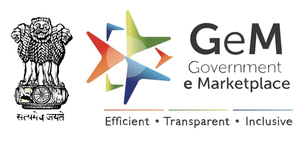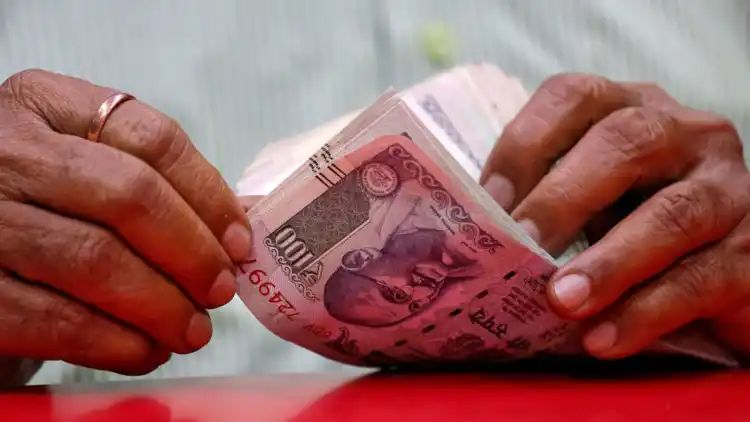Pharma Companies Bought Electoral Bonds of Almost Rs 800 Cr. Here’s Why That’s a Problem

New Delhi: An analysis of 35 pharmaceutical companies which purchased electoral bonds – details of which the SBI revealed after a Supreme Court order – reveal that a majority of the companies that donated are members of two of the most powerful associations of pharma companies in the country.
Notably, the Supreme Court on March 18 had refused to entertain petitions of industry bodies like Assocham, FICCI and CII on the electoral bonds issue.
All the experts with whom The Wire spoke highlighted the fact that the two pharma associations – the Indian Drugs Manufacturers Association (IDMA) and the Indian Pharmaceutical Alliance (IPA) – have a significant influence on the government’s policy making, especially on aspects concerning drug regulation and drug pricing.
Together, the IDMA and IPA have more than 1,000 members. Both these associations are either affiliated to or are members of the industry bodies whose petitions the Supreme Court refused to hear.
The Wire wrote to both the associations on March 18 seeking their reaction to these political donations. Their replies will be added if and when they come.
This present analysis includes only drug makers and excludes hospital(s) figuring in the list of electoral bond donors. For the sake of uniformity, this list also excludes companies which make medical equipment and those which make only vaccines. For instance, Bharat Biotech, according to the SBI database, donated Rs 10 crore in electoral bonds – but has been excluded from the current analysis.
This analysis, therefore, covers almost all drug makers who donated to political parties, according to the SBI database.
The Wire finds that out of the top five pharma donors, four are either members of the IDPA, the IPA or both.
Dr Reddy’s Laboratories, which bought bonds worth Rs 80 crores, is the top purchaser in this category. It is a member of the IDMA and the IPA. Similarly, Natco Pharma Limited (which spent Rs 69.25 crores) is a member of both the groups.
Torrent Pharmaceuticals (Rs 77.5 crore) and the Hetero group (Rs 60 crore) are the part of the IDMA, while one among the top five purchasers, Divis Laboratories Limited (Rs 55 crore) is not a member of any of the two groups.
A detailed analysis of the cost of bonds bought by the 35 pharmaceutical companies, and their membership of both or either of the two bodies is presented below.
Incidentally the total of Rs 799.66 crore, which is donated by these 35 drugmakers, is more than half of what the Narendra Modi government allocated in the Union Budget 2024-25 under the head ‘development of pharmaceutical industry’. This money was to be utilised by the department of pharmaceuticals of the government.
Under this head, the government, among other things, builds bulk drug parks to ‘significantly bring down the manufacturing cost of the bulk drugs.’ This is, thus, understood to be hand holding by the government so that the pharma industry grows.
Now, however, it turns out that the pharma industry is investing a significant amount of their profits as donations to political parties.
All the experts who spoke with The Wire noted that it was a revelation to see the financial connections between the government and pharma connections set out so clearly in the form of electoral bond data. It had been conjecture until now.
However, various developments, over a period of time, including in the last few weeks, makes one wonder if pharma companies and their associations are being treated with kid gloves.
Doc-pharma guidelines still not mandatory
One of the most recent sets of guidelines that were put out by the government was a code regulating the relationship between doctors and pharmaceutical companies. Known as the ‘Uniform Code of Pharmaceutical Marketing Practices’ (UCPMP), it stipulates a number of important things.
It says the pharma firms must not organise leisure travel trips for doctors, should not hold medical conferences in foreign countries, and should not offer any gift to healthcare professionals, among other things.
The idea of the UCPMP is to stop unethical practices that pharma companies may adopt to lure doctors in exchange for prescribing drugs sold by the company.
It is noteworthy here that pharma associations like the IDMA, the IPA and others are ones that are supposed to adjudicate whether a pharma company has violated the UCPMP.
According to the UCPMP, if a complaint is received against any of their members violating it, these associations can take a final call on that. They can expel it from the association concerned – the punishment described in the UCPMP.
The other problem with the implementation of UCPMP was that it was voluntary. In this detailed piece, The Wire reported how, though the government did away with the word ‘voluntary’ from the UCPMP, which was there in its previous version, it stopped short of making it mandatory – a long-pending demand of health activists.
A day after the story was published on March 13, 2024, a government spokesperson texted this reporter to say the UCPMP is not voluntary now.
The message read:
‘[The]UCPMP is not voluntary anymore. It is mandatory. The entire process will be under Government oversight. Read section 12 (v) of the Code. Any Government agency or authority can be brought in as per statutes and as relevant to the context.’
A few media outlets also reported that the code has become mandatory.
Shastri Bhawan. Photo: Pinakpani/Wikimedia Commons. CC BY-SA 4.0.
The Wire posed two follow-up questions to the government spokesperson, which till date remain unanswered.
What ‘statues’ ‘oversight’ and ‘contexts’ are being referred to here?
Most importantly, if the code is mandatory, where is the force of law to support it; and could the spokesperson point to a relevant gazetted notification to say which law of the land governs the code if the government were to take any action?
As for section 12 (v) of the Code, which the spokesperson referred to, it states the following:
‘In cases where disciplinary, penal, or remedial action lies within the domain of any agency or authority of the Government in accordance with the statute, the [Ethics] Committee [of pharmaceutical associations] may send its recommendations to such agency or authority through the Department of Pharmaceuticals.’
Now if at all an ethics committee of the pharma associations does decide to refer the matter to the government, what penalty the government can impose is not clear. Neither does the code say anything nor is it clear which law the government would use to punish the erring firms.
The current version of the UCPMP, which replaced the 10-year-old version, doesn’t have any scope of suo motu action against the erring firms. Someone has to collect evidence against a firm to establish the violation. Also, the identity of the complainant has to be mandatorily revealed.
‘This tilts the equation in the favour of the companies and makes the job of the complainants difficult,’ said Dr Gurinder S. Grewal, a member of the Association of Doctors for Ethical Healthcare (ADEH). The ADEH also issued a statement on March 18 berating the government for not coming out with a mandatory code.
Drug pricing rule committee has pharma associations
On March 12, 2024, the government issued a notification for the constitution of a committee for ‘reforms in the pricing framework for drugs and medical devices’.
The committee is supposed to revise the Drug Pricing Control Order (DPCO) of 2013. The DPCO-2013 fixed the prices of about 300-odd drugs which the government felt constituted an ‘essential list of medicines’. Now, the committee is tasked with the revision of the DPCO.
However, apart from the three government officials, the committee comprises two ‘special invitees’ as well. They are representatives of the two pharma associations discussed above – the IDMA and the IPA.
‘In a departure from [the] usual process, the IDMA and the IPA have been granted privileged access as special invitees to the committee, rather than maintaining a neutral stand and treating all stakeholders [including civil society groups advocating for affordable drugs] at par,’ said Malini Aisola, co-convenor of the All India Drug Action Network (AIDAN).
On earlier occasions, both the industry representatives and the civil society groups would be called for consultations as independent stakeholders but none would be a part of the committee itself.
This change, a civil society groups and individuals advocating for affordable drugs allege, is a conflict of interest.
The DPCO applies to the medicines which fall under the essential list. For the majority of drugs falling outside this list, there is no cap on prices. Attempts by the government to impose any cap under ‘trade margin rationalisation’ plan have fallen flat due to opposition by some pharma associations.
NMC’s stringent ethics also dropped
The National Medical Commission (NMC), which regulates practising doctors, replaced its own code of ethics with a new one last year. Among other things, it sought to ban pharma-sponsored medical conferences. However, within days of the notification of the new code, the government put it in abeyance.
The health ministry opposed the NMC regulations after one-sided discussions with some groups, including IPA and Organisation of Pharmaceuticals Producers of India,’ claimed Aisola, as she said, she had been tracking what led to the decision of abandonment of the new ethics.
‘The health ministry raised concerns about the negative impact on big manufacturers propagating prominent brands, while also backing sponsorship by pharma companies of the medical conferences of doctors, claiming that the quality of medical practice would deteriorate if sponsorships were disallowed,’ she added.
Not only had the Indian Medical Association (IMA) opposed the new ethics, even some of the pharma associations did.
The COVID-19 question
Even during the challenging times of COVID-19, many had said that the government had done less than what was desirable to regulate the pharma sector.
‘The emergency-use authorisations for some COVID drugs were granted on the basis of problematic data. For instance, Glenmark’s Favipiravir failed to show any benefit in its trial. Similarly, Itolizumab was surprisingly exempted from conducting a Phase 3 trial even while concerns about incomplete disclosure of Phase 2 results remained,’ said Siddhartha Das, another member of the AIDAN.
‘These authorisations were never revoked even when problems came to light and the companies involved went on to make massive profits during the pandemic,’ he added.
Another issue he pointed out was the escalated prices of drugs during COVID-19. ‘In spite of the requests for governmental intervention to lower prices of COVID related medications and massive price hikes adding to the distress of patients, the National Pharmaceutical Pricing Authority failed to act except to request compliance of companies selling Remdesvir to voluntarily reduce their price.’
As for funding to political parties, ADEH’s Grewal said, if the pharma firms could donate to political parties, then they must not resist the margin (profit) rationalisation plans, which would significantly reduce the cost of the drugs and, therefore, the out-of-pocket expenditure of the common people also.





